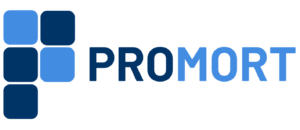Mortgage Loan Originators (MLOs) face unyielding marketplace competition, which demands robust closing strategies as their primary success factor. The method of persuading borrowers to rush through the closing process no longer produces results in modern mortgage environments with informed buyers who take time to be cautious and respond to multiple parties, including realtors, underwriters, and appraisers. The key to current success involves creating unambiguous value demonstrations while achieving stakeholder consensus through perfect timing of your closing process to prevent unnecessary delays.
The planning of mortgage closings, when executed well, gives loan officers a competitive advantage that helps them finalize deals instead of losing clients to prolonged delays. MLOs maintain the strategic value-driven management of borrower expectations alongside title company and lender communications while ensuring end-to-end process alignment for building trust among stakeholders throughout the complicated process.
Understanding Modern Closing Strategies
Consensus-Based Close
The process of closing a mortgage transaction demands that everyone from the borrower to real estate agents to underwriters, and other essential parties must give their approval. Your success depends on understanding what specific concerns each stakeholder has when it comes to loans and appraisals, and documents, so you can speak to them directly.
Example: Identify all stakeholders beforehand, specifically borrowers and realtors, and underwriters, and alter your communication based on their individual needs to preserve synchronization between parties and minimize unexpected delays.
Value-Centered Close
Homebuyers seek concrete advantages of their mortgage deal besides rate-related factors. Explain how each loan option helps customers achieve better finances and achieve their long-term objectives.
Example: Present detailed examples to demonstrate that low-rate commitment produces significant money savings through the entire loan period, along with funding availability options during future refinancing or house upgrades. When borrowers see a clear quantification of their investment, they become more confident about their decisions.
Risk-Mitigation Close
The main source of delays and objections stems from customers who are uncertain about the process and fear unknown risks. Offer direct treatment by presenting the potential dangers of delaying closing or accepting unfavorable loan terms.
Example: Dramatize actual situations where homeowners tarnished their properties because they delayed property document submission or faced delayed home appraisals to motivate customers toward quick action.
Timing Your Close: Smart Planning in the 2025 Mortgage Market

The 2025 mortgage market requires smart planning practices. The combination of bank holidays and appraisal delays with underwriting delays will cause major disruptions to mortgage closing times throughout 2025. An example of delayed closings occurs when wrapping them around major holidays such as Labour Day and Thanksgiving, since banks and lenders, together with title companies and government offices, function with minimal staff or shut down entirely. Closing delays can occur due to slower communication between decision-makers when key personnel who including loan officers and underwriters, and real estate agents, take extended vacations. Federal TRID regulations mandate three business days of waiting for borrowers to review their Closing Disclosure documentation before closing can proceed, so scheduled holidays will add additional days to the completion timeline.
Maintaining flexibility by making strategic and early plans together with borrowers, realtors, underwriters, title agents, and lenders will help Mortgage Loan Originators choose dates that avoid відомі disruptions during the closing process. Picking middle-of-the-week dates for closing instead of Fridays or pre-holiday dates will ease pressure on each participant while decreasing the likelihood of hasty mistakes. By strategic planning of the closing date according to borrower relocation plans, together with their financial needs, which involves reducing prepaid interest payments, the transaction moves more efficiently and results in faster closings. The success of 2025 mortgage market closings requires both proactive communication and strategic scheduling implementation.
Read more about How Tariffs Could Impact Mortgage Rates.
Practical Steps to Build Your Mortgage Closing Game Plan

Building a successful mortgage closing strategy requires the following practical steps
- Map Decision Makers Early: Know every person participating in the process, which includes borrowers and realtors and underwriters, and title agents, while learning about their specific responsibilities and issues.
- Prepare Tailored Value Propositions: Present loan advantages in language that speaks directly to each borrower’s personal economic objectives, together with their individual circumstances.
- Anticipate Objections: Early identification and resolution of widespread borrowing problems, like credit checks and appraisal values, and delay documentation through simple solutions should be part of your strategy.
- Schedule Strategically: Prioritize scheduling outside busy holiday seasons and familiar low periods while scheduling all necessary parties in advance.
- Use Smaller Commitments: By securing pre-approvals from borrowers and taking steps to order appraisals and collect documents one at a time, you can create an increasing level of progress that will lead to a successful final closing.
Frequently Asked Questions
What happens during the mortgage closing?
The final stage of closing requires your signature on mortgage loan documents such as the promissory note and deed of trust, and the Closing Disclosure. At closing, you must show proof of homeowners’ insurance and make payments for closing costs and down payment. The seller completes the property transfer, and funding occurs alongside transaction documentation to officially grant you ownership of that property.
How long does the closing process take?
The duration for closing spans between one hour and several hours, while the complexity of transactions, along with the parties’ involvement, decides the timeframe. Review all documents with great attention to detail and ask clarifying questions before signing.
What documents do I need to bring to closing?
Which documents should I bring when attending the closing?
Most closing documents consist of government-issued identification proof and Closing Disclosure documentation, and homeowners’ insurance documents, in addition to a cashier’s check or wire transfer documentation for closing payments and down payments. Ask your title company or lender if they need any further documentation.
What are typical closing costs in 2025?
The normal amount of expenses in real estate transactions during 2025 stands at what?
The total amount that homebuyers need for closing expenses typically falls between 2% and 5% of the home loan value. Each lender and location, and specific loan type, adds their unique fees to closing costs that span from appraisal to title insurance and lender services fees.
Conclusion
Acquiring a mortgage loan today requires both strategic decision-making and value-driven thought processes to effectively assess timing and work with stakeholders. Mortgage Loan Originators who succeed recognize that mortgage closing requires managing different stakeholders who have specific requirements and issues to address. MLOs who create alignment between borrowers and realtors and underwriters and title agents while demonstrating loan benefits will both accelerate the closing process and minimize spending-related delays.
Professional anticipation and swift resolution of borrower concerns allow originators to sustain a positive momentum while earning trust. The success of a closing depends on well-planned scheduling that prevents problems such as appraisal delays and holiday periods. The implementation of these strategies in your closing approach will ensure you maintain steady deal wins as you create enduring client relationships while excelling in the challenging mortgage market. Begin implementing these methods right now to enhance your mortgage closing success and build better relationships as a professional.
Today’s active mortgage market demands a targeted strategy that gives you an incredible advantage in the process. You can achieve winning deals by building agreement among stakeholders while showing proof of added value at exactly the right times. Your success in 2025’s mortgage market depends on using these findings plus following practical techniques to build lasting relationships with clients. You need to start improving your techniques and closing methods today.
Visit ProMort.com now and explore our solutions suited for your ideal plan!
Get free consultation HERE.


